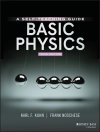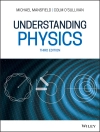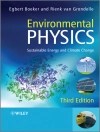This book highlights the proceedings of the International Conference on Atomic, Molecular, Optical and Nano-Physics with Applications (CAMNP 2019), organized by the Department of Applied Physics, Delhi Technological University, New Delhi, India. It presents experimental and theoretical studies of atoms, ions, molecules and nanostructures both at the fundamental level and on the application side using advanced technology. It highlights how modern tools of high-field and ultra-fast physics are no longer merely used to observe nature but can be used to reshape and redirect atoms, molecules, particles or radiation. It brings together leading researchers and professionals on the field to present and discuss the latest finding in the following areas, but not limited to:
Atomic and Molecular Structure, Collision Processes, Data Production and Applications
Spectroscopy of Solar and Stellar Plasma
Intense Field, Short Pulse Laser and Atto-Second Physics
Laser Technology, Quantum Optics and applications
Bose Einstein condensation
Nanomaterials and Nanoscience
Nanobiotechnolgy and Nanophotonics
Nano and Micro-Electronics
Computational Condensed Matter Physics
Table of Content
X-ray free electron lasers and atomic physics in dense plasmas.- Recent progress on identifications of spectral lines from tungsten ions in low and high ionization stages using laboratory plasmas for fusion research and its application to plasma diagnostics.- Radiative collisions of atoms and ions from astrophysical to ultracold domains.- Multielectron processes in ions formation by electron impact.- Electron energy distribution functions in ionized gases: an engineering point of view.- Green synthesis of silver nanoparticles using abutilon theophrasti leaves and its photocatalytic activity for water treatment.- Synthesis of deformation resistant palladium (pd) nanoparticle layer.- Influence of dense plasma environment on the he-α and he-β transitions of cl15+ ion.- Fabrication of ag thin film nano layered structure and its potential application as the supercapacitor electrode.- Energy levels, transition data and sxray spectral lines in w lxvii.- To study temperature and hydrostatic pressure effect on orc for a semi-parabolic 1-d inas excitonic system.- Numerical modeling & analysis of gap-se chalcogenide based rib waveguide for nonlinear applications.- Nanodiamonds – synthesis techniques, properties and applications in photovoltaics.- Structural properties of tis2/mwcnts hybrid nanostructures.- Broadband spiral optical delay on a silicon nitride platform at 1310 nm wavelength.- Robust half metallicity in ti doped base: a promising spintronic material.- Determination of atomic properties of pm-like gold.- Energy transfer from carbon dots to organic dye.- Shape and size dependence of noble metal nanoparticles on decay rates of an emitter.- Structural, morphological and electrochemical studies of complex spinel titanate li2znti3o8.- Conductivity and structure correlation in gd2zr2o7 pyrochlore for oxide fuel cell technology.- Identification of different phases and thermal analysis of mn doped cadmium oxide nano-rods.- Slow optical soliton in a three-level quantum well under electromagnetically induced transparency.- Structural, magnetic and optical study of transition element doped bismuth ferrite.- Investigation of magneto-conductance transition effect in copper phthalocyanine thin films: electrical impedance study.- Structural investigations of dy3+ doped cubic gd2o3 nanopowder via rietveld refinement.- Simple and efficient approach to fabricate fe3o4/cnt based electrode for supercapacitors application.- Effect of gd3+ substitution on luminescence characteristics of gdvo.- Effect of doping on structural and luminescence behavior of calcium aluminates.- Novelty of light scattering technique over other conventional techniques for characterization of bio-particles.- Reduced graphene oxide-copper nanocomposites synthesis via green chemistry.- Stand-off detection of dnt isomers by raman spectroscopy with nanosecond time-gating.- Study of sodium storage and diffusion over phosphorene using density functional theory.- Plasmonic probing of refractive index variations using mwcnt@ta2o5 core–shell nanoparticles.- Towards detection of flavonoid quercetin using ta2o5 nanoparticles embedded rgo and chitosan matrix.- Optimization study of nozzle end grid size impact on the pressure drop and maximum velocity of a rocket motor.- Thermo-physical properties and combustion wave of nitramine based composite propellant compositions.- Investigation of modulation instability in a multiple quantum well nanostructure under eit window.- Fabrication of polyaniline nanospheres as a good electrode material in supercapacitors.- Safe, efficient and portable power generation in oxide based hydroelectric cells by water splitting.- Theoretical investigation of various inelastic cross sections for e-co scattering.- Modelling novel organic molecule 2-(4-ethylbenzylidene) malononitrile (ebm) for nonlinear optical (nlo) applications.- Vibrational (ft-ir and ft-raman) spectroscopic investigations, nlo, nbo and mep analysis of 1, 4-dibromo-2, 5-dimethoxybenzene by dft.- Vibrational spectral studies, thermodynamic investigations and dft (nlo, nbo, mep) computation of benzene derivative.- First principles study of the electronic structure, charge density contours and fermi surfaces of zirconium-based weyl semi-metals zrx (x = s, Se, and te).- Energy levels and oscillator strengths of sulphur like cr useful in astrophysical plasma.- Evolution of plasma wave oscillations in terahertz frequency regime in the wake of ultra-short laser irradiation on air plasma.- Efficient supercontinuum generation in silica pcf employing tan-hyperbolic gaussian pulses.- Calculations of total ionization cross-sections for electron impact on h2so4.- Excitation- emission matrix based characterization & detection of fluorescent coumpounds.- Theoretical electron scattering studies with plasma important atoms: tantalum and molybdenum.- Lattice dynamic and thermoelectric properties of scptbi in topological phase: a dft approach.- Simple wet-chemical synthesis of ce3+ doped γ-baalf5.- Electronic solvation (uv-vis) and nlo properties of 2-chloroanthraquinone: An experimental and computational modeling approach.- A simple model for electron impact elastic cross-section of complex bio-molecules for energies from 20 – 2000 ev.- Detection of water quality for purity assurance using optical means.- CDBA-based inverse filter configuration.- Comparative study of polypyrrole/zinc oxide nanocomposites synthesized by different methods.- Investigation of azo as an alternative to ito for cathode material in organic solar cells.- Jacobi elliptic functions and their application in ultra-cold atomic gases.- Analysis of multimode interference based more sensitive fiber optic methane gas sensor using bessel beam with wave theory.- Calculation of thermodynamic relations with a modified and magnetized mass in pnjl model of cosmology.- Negative ion formation in electron collisions with fullerenes: fullerene anionic catalysis.
About the author
Dr. Vinod Singh is currently the Associate Director of Human Resource Development Centre and Associate Professor in the Department of Applied Physics at Delhi Technological University, New Delhi, India. He received the Ph.D. degree in Physics from Indian Institute of Technology (IIT) Delhi, New Delhi. He was honoured with the University Gold Medal in both the B.Sc. and M.Sc. He has the teaching, research and academic administrative experience of more than 18 years. He has been awarded the Research Excellence Award by DTU and the best presentation award in Nano India 2017 conference. He has delivered more than 10 invited talks in international and national academic events. He is the Principal Investigator of two sponsored research projects. He was the convener of the International Conference on Atomic, Molecular, Optical and Nano Physics with Applications (CAMNP-2019) held at DTU. He is an active researcher supervising eight Ph.D. scholars and has published a patent (granted) and several research papers in international peer reviewed journals of high repute including Nature publishing group. His research interests include material science, sensors, 2D materials, functional nanomaterials and their size dependent properties and applications.
Dr. Rinku Sharma is a professor and the head of the Department of Applied Physics, Delhi Technological University, India. She received her Ph.D. (1999) in Physics from the University of Delhi, India. Her broad areas of research include interaction of super intense, femto-second laser fields with atoms, and molecules-involving multiphoton processes, collisions in intense short laser pulses, atomic structure calculations for multi-electron atoms and ions using configuration interaction technique, electron impact excitation collision strengths and rate coefficients having application in astrophysics, plasma physics and nuclear fusion reactors, photoionization of complex ions and atoms, plasmaphysics/plasma applications, nanotechnology, THz radiation emission.
Prof. Man Mohan is an Emeritus Professor in the Department of Physics & Astrophysics, University of Delhi, Delhi and Alexander Humboldt Fellow. He has been awarded the Senior Associateship by ICTP Italy and Emeritus Professorship by University Grants Commission New Delhi India. He has guided more than 25 research students for their Ph.Ds , He has more than 200 research papers in international journals. He has seven books to his credit published through international publishers like Cambridge, Kluwer, Narosa & Springer. He has been a Visiting Professor in many countries like USA, France, Canada etc.
Dr. Mohan Singh Mehata received his Ph.D. in Physics from Kumaun University (2004). He has been awarded Young Scientist Fellowship (2004) by DST, Japan Society of Promotion of Science (JSPS)-Post-doctoral fellowship (2007) by JSPS, Japan, Pos^90) andpatented (03) significant research work based on organic molecules, organometallic compounds, polymers, nanomaterials/quantum dots, 2D materials, given their applications as optical sensors, OLEDs, QLEDs, solar cells, etc. explored by steady-state, time-resolved fluorescence, Stark and transient absorption spectroscopic techniques. He is a faculty at the Department of Applied Physics, Delhi Technological University. His research interests include experimental and theoretical investigation of fluorescent organic molecules, organometallic compounds, nanomaterial/quantum dots and 2D materials.
Dr. Anil Kumar Razdan was the associate director at Laser Science and Technology Centre (LASTEC), Delhi, a premier laser laboratory of Defence Research and Development Organization (DRDO), India. He has over 38 years R&D experience in the area of laser technology and applications. He obtained his Ph.D. from the Indian Institute of Technology Delhi in the area of Laser Spectroscopy. A life member of Indian Laser Association and Laser Spectroscopy Society of India, Dr. Razdan, has co-authored two books. His research interests include laser spectroscopy-based sensors for remote sensing applications, development of high power laser systems, diagnostic techniques and adaptive optics.












